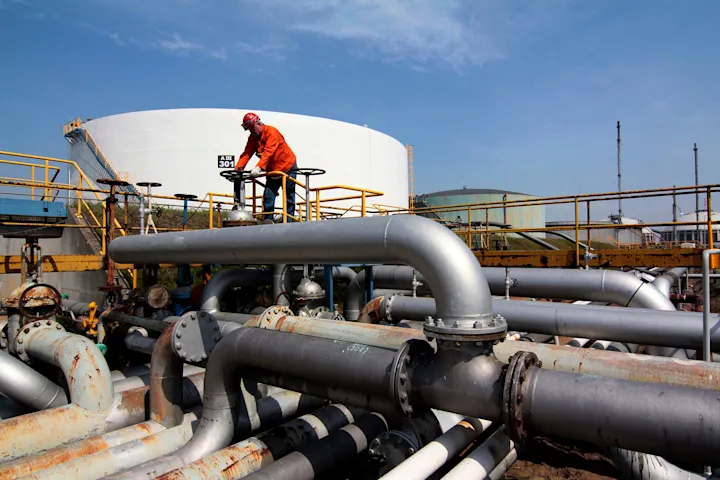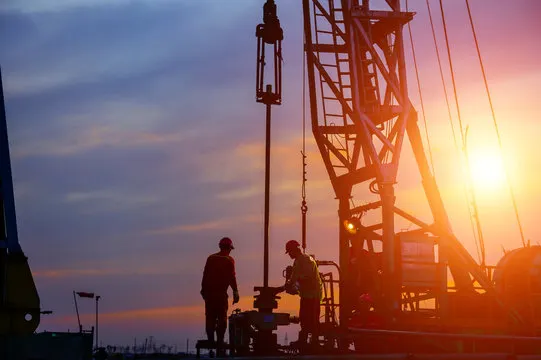A Historic Shift in the Energy Sector
The global shift towards renewable energy is shaking up the oil industry. Governments and corporations are pushing for greener alternatives, but this transition has sparked fears among oil workers. Many fear job losses, reduced wages, and an uncertain future. Now, labor unions and workers are considering strikes to protect their rights.

Why Are Oil Workers Considering Strikes?
As the world moves toward clean energy, oil and gas workers are facing major challenges:
1. Job Security Concerns
- The shift to renewables means oil refineries, drilling sites, and pipelines are closing.
- Thousands of jobs in the oil sector are at risk.
- Workers fear unemployment with no clear plan for transition to new jobs.
2. Wage and Benefit Reductions
- Many oil companies are cutting costs by reducing wages and benefits.
- Retirement plans and healthcare benefits for workers are also under threat.
- Workers demand fair compensation for their years of service.
3. Lack of Government Support
- Governments are investing billions in renewable energy but not in retraining oil workers.
- Many workers feel abandoned and left without alternative job options.
- Unions are pushing for stronger government policies to protect energy workers.

Key Countries Affected
1. United States
- The U.S. oil industry employs over 9 million people.
- Strikes could disrupt energy supplies and increase fuel prices.
- The Biden administration’s climate policies are accelerating the transition.
2. United Kingdom
- The North Sea oil industry is declining due to new environmental regulations.
- Major oil companies like BP and Shell are shifting to green energy.
- Labor unions warn of massive layoffs without proper transition plans.
3. Middle East
- Countries like Saudi Arabia and UAE rely heavily on oil production.
- While these nations invest in renewables, oil remains a key economic driver.
- Workers fear job losses despite new government projects in clean energy.
4. India & China
- These nations are major consumers of oil but are also investing in green technology.
- India’s coal and oil workers have already staged protests over job cuts.
- China’s rapid expansion of renewable energy is affecting oil sector employment.

The Role of Labor Unions
Labor unions are playing a crucial role in negotiating with oil companies and governments.
1. Demands from Unions
- Job protection and alternative employment opportunities.
- Higher wages and benefits for existing oil workers.
- Government-funded retraining programs for green energy jobs.
2. Threats of Strikes
- Large-scale strikes could halt oil production and disrupt economies.
- Union leaders warn that protests will intensify if demands are not met.
- Strikes may lead to higher fuel prices, impacting consumers worldwide.
Potential Consequences of Worker Strikes
If oil workers go on strike, it could have major global impacts:
1. Rising Fuel Prices
- Reduced oil production could lead to higher gas prices.
- Supply chain disruptions might increase transportation costs.
2. Economic Slowdown
- Industries dependent on oil, like manufacturing and aviation, may suffer losses.
- Developing nations that rely on oil exports could face financial crises.
3. Energy Crisis & Power Shortages
- Many countries still depend on oil for power generation.
- Strikes could lead to blackouts and energy rationing.

What’s the Solution? A Just Transition Plan
To prevent a major energy crisis, experts suggest a “Just Transition” plan:
1. Investment in Retraining Programs
- Governments and companies should fund education and training for oil workers.
- Courses in solar, wind, and other renewable energy sectors must be provided.
2. Fair Compensation for Workers
- Severance packages for laid-off employees.
- Financial aid for workers transitioning into new industries.
3. Stronger Worker Protections
- Clear government policies to ensure oil workers are not left behind.
- Collaboration between labor unions and corporations for smoother transitions.
Conclusion: The Future of Oil Workers in a Green World
The green transition is inevitable, but it must be fair and just. Workers are at the heart of the energy industry, and their concerns must be addressed. With proper planning, retraining, and fair policies, the shift to renewable energy can benefit both the planet and its people. The next few months will be crucial as negotiations between unions, companies, and governments continue. Will strikes disrupt the industry, or will a fair solution be reached? The world is watching.
Vaccination Rates and Public Trust: Navigating Health Information in the Digital Age






